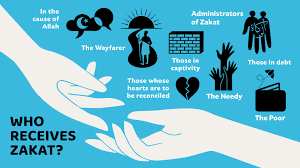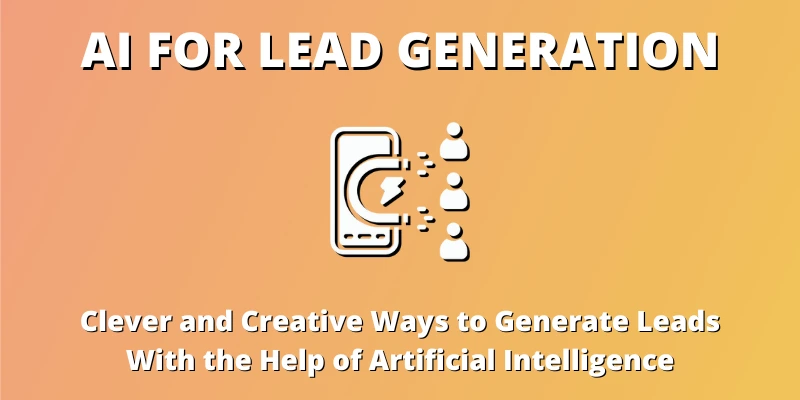What is Zakat – One grows closer to Allah SWT through Zakat. It’s a lovely way to thank Allah, who has given us everything. Giving to those in need allows us to uphold our Muslim religious duties and ensures that no one goes without food or shelter.
Those who pay zakat are also blessed innumerable ways. It not only purifies one’s money and absolves small faults, but it also opens up a world of spiritual advancement and material blessings for the giver.
Table of Content:
- Role of the State in Islam
- What is Zakat & Meaning
- Zakat’s Functions & Objectives
- Difference Between Zakat and Tax
- What is Zakat Percentage?
- What is Zakat al fitr?
- What is Zakat Calculator?
What is zakat & Role of the State in Islam:
What is Zakat in Islam:
Islam has a set of principles and ideals that cover social, economic, and political facets of human existence.
Being goal-oriented, the Islamic way of life is impractical without a structured society that is controlled in conformity with Islamic principles.
The Quran without any possibility of doubt condemns disorder and anarchy and the prophet (PBUH) stressed the need for organization and authority in Muslim society.
Regardless of what is zakat, Islam considers the state as a tool for achieving the ultimate, material and spiritual, objectives of Islamic civilization. However, the authority exercised by the state is not absolute. It is the trust from Allah (God) and is to be exercised in accordance with the terms of the trust as aid down in the sharia.
Two of the most terms of trust are that the state should be democratic and welfare-oriented. The Islamic State has to conform to the spirit of Islam which is a practical way of life. The head of the Islamic State has to obey the law of Allah (God). However, the following are the important functions of the Islamic State.
1. Democratic Orientation:
Sovereignty (Complete freedom and power to govern), according to Islam, vests in Allah (God) implies the rule of the Prophet and as elaborated in the Prophet’s sunnah during the course of his mission. Once the authority of Allah is recognized, the authority for its establishment is vested in the whole ummah and is to be exercised in the light of the Quran and sunnah after democratic deliberation with the ummah.
2. Welfare Commitment:
The welfare function of the Islamic State is particularly stressed to remain responsible for the affairs of Muslims. But those who do not strive sincerely for their well-being will not enter into paradise with them.
The evidence in the Quran and Sunnah and the writing of Islamic scholars for the welfare function of the Islamic states are so wheeling that It would be utterly unreasonable to describe the Islamic State as anything other than a welfare state.
3. Spiritual Uplift:
The Islamic welfare state has a duty to protect its citizens’ spiritual well-being. The Islamic state must develop as an educational system in the molt of Islam so educational institutions produce young men and women imbued with the ideas of Islam.
4. Eradication of Poverty, Full Employment, and Optimum Rate of Growth:
Since economic resources are a trust of Allah (God), it is the moral obligation of the trustee to employ these resources efficiently to realize the purpose of the trust which is the welfare of the ummah, This naturally implies:
Firstly, the Eradication of poverty and the satisfaction of all basic human needs.
Secondly, complete and effective use of all available human and material resources in order to maximize economic growth and raise everyone’s level of living.
Thirdly, Generating conditions that can avoid unemployment and inflation.
5. Stability in the Real Value of Money:
One of the serious problems of contemporary society is the persistent inflation and thus decline in the value of money and monetary assets. An Islamic state should itself be clear about its role with respect to price stability and should keep in mind to contribute whatever it can for the attainment of that goal.
6. Law and Order Condition:
Sound law and order in society and the extent of security of life and property are one of the prime determinants of individuals. Hence it is the duty of the Islamic state to safeguard the life and property of all the individuals within its geographic boundaries.
7. Social and Economic Justice:
Since Islam considers mankind s one family, all members of this family are alike in the eyes of Allah and before the law revealed by Him. There is no difference between the rich and poor, the high and the low, or white and the black.
There is to be no discrimination due to race, color, or position. The only criterion for a man’s worth is character, ability, and service to Islam and humanity. The Islamic State could play an important role through its effective administrative role based on ethical values.
8. Social Security & Equitable Distribution of Income and Wealth:
Gross inequalities of income and wealth could destroy rather than foster the feelings of brotherhood that Islam wishes to create. It is the responsibility of the Islamic respectable standard of living for every individual who is unable to take care of his own needs and requires assistance. In this way, the system of Zakat and Usher can play an effective role.
9. International relations and National Defence:
With respect to the wider scope of mankind and the Muslim ummah, it is the responsibility of the Islamic state to try to make as rich a contribution as it can toward the spiritual and material uplift of mankind. If resources permit it should provide assistance to relieve hardship and promote growth and accelerated development in deserving countries.
The guiding principles of its policies in international economic relations may in the light of Islamic teachings, the Islamic state should do its utmost to strengthen its defenses so as to prevent or frustrate any aggression again faith, territory freedom, and resources.
What is Zakat:

Islam does not permit the hoarding of accumulated wealth, It demands that whatever wealth you have must either be used in the purchase of your own necessities or given to someone else so they can fulfill their needs. As a result, the entire commonwealth can remain in perpetual circulation.
What is zakat percentage: However, if you do not do so and insist on its accumulation, then two and a half percent per annum will be taken out of this accumulation by force of law. This collected amount should be spent on giving assistance to such persons who are not fit to take part in economic struggle or have not, in spite of their struggle been able to secure their full share.
This is all Zakat, and the administrative machinery proposed by Islam for his taxation is the joined exchequer of the community in which Zakat is collected and then redistributed among those sections of the community which needs and deserves help.
What is Zakat’s concept: This is in fact, the best form of insurance for society and destroys all the evils, which arise from the absence of any regular arrangement for collective help and cooperation. What really forces a man, in the capitalistic system, to accumulate wealth and invest it in a profitable business and bring into existence institutions like life insurance, is that under this system everyone’s life is wholly dependent on his own means.
If one has not lain by anything for one’s old age then one may face starvation in old age:
If one dies without leaving any inheritance for one’s progeny. They will be driven from door to door without being able to secure a bit of bread.
If one falls sick and has nothing in the store, one may not be able even to secure medical treatment for oneself:
If one’s house is burnt down or one sustains loss in business or some other sudden calamity.
One cannot find any support anywhere, similarly, what forces the laboring classes under a capitalistic system to accept any terms of employment offered by the capitalist and become his slaves. This is the very same thing i.e. the fear that if the laborer does not accept the remuneration, that the capitalist is prepared to offer for, his toil and sweat. He won’t be able to avoid starving for even one day as destitution will be staring him in the face.
Moreover, it is only due to this system that the spectacle is witnessed of the greatest curse that has affected the world by the grace’ of this capitalistic system while, on one side, millions of hungry mouths are to be fed and on the other side there are large stocks of agricultural produce and manufactured articles which cannot find any market.
The result is that tons of grain are thrown into the sea instead of feeding the hungry. Islam roots out all these evils through the institution of Zakat and the agency of the public exchequer for its collection and distribution. The public exchequer is always available as a helper. You need not take thought for tomorrow. Whatever you are in need of, you can go to the public exchequer and obtain your rightful due.
What is Zakat Meaning:
One of the five pillars of Islam is zakat. The word Zakat means to grow, to purity, and to improve: It refers to that purity of the self, which is acquired after the payment of the obligatory contribution of Zakat. Zakat is made a religious obligation to all sahib-e-nisab (well-off) Muslims to pay Zakat to all the needy and poor Muslims and converters out of their hoarded wealth at the rate of 2.5% annually. It is the goodness of the heart one attains when one is neither miserly nor loves wealth for its own sake.
Wealth is dear to everyone and everyone loves his property and other sources of wealth, but the one who spends this wealth on others attains goodness and purity.
This is real growth and contribution levied on his wealth in the form of the sachet. it is because of this spiritual aspect of sachet that it is not levied on non-Muslims, for they cannot be forced to perform any act of worship enjoined by Islam.
What is Zakat Charity?

Zakat, one of the tenets of Islam, is a type of required almsgiving that has the power to alleviate millions of people’s suffering. Zakat is a religious requirement that requires all Muslims who meet the prerequisites to annually pay a specific amount of wealth to charitable purposes.
What is Zakat’s Functions:
The word Zakat as explained above performs two important functions:
First, it purifies the soul of the contributor from the evils of niggardliness and, instead. encourages charity and the expenditure of good things.
Second, it leads to the healthy growth of the community. It discourages all influences, which hinder and encourages those, which help in the achievement of economic progress.
By making it a duty of every wealthy Muslim to pay Zakat on his wealth, property, commercial goods, etc, it provides a very strong stimulus to people to invest their capital. So that it may grow and thereby increase the total wealth of the community. Both these ideas of purity of soul and economic growth are conveyed by the word Zakat.
What is Zakat’s Objectives:
Zakat is an important source of public finance for the Islamic State and has the following objectives:
1. Purification of the soul:
Zakat purifies the soul of contributors from the evils of miserliness, it makes them humble and God-fearing
2. Elimination of Wealth Concentration:
Zakat prevents the concentration of wealth as the wealthy Muslim members pay Zakat out of their hoarded wealth to the poor and needy Muslims. In this way, it prevents the concentration of wealth in a few hands.
3. Healthy Growth of the Society:
The payment of Zakat leads to the healthy growth of society. The amount collected through Zakat is spent for the uplifting of the less fortunate members of society.
4. Bridge the Gap Between Rich and Poor:
Through the Zakat system wealth is transferred from the rich to the poor, hence, it is an important source to bridge the gap between rich and poor.
5. Mobilisation of Resources:
The Zakat system helps a Muslim community to mobilize its unused and hoarded capital for productive purposes. In this way, it increases the production efficiency of the available resources. It also helps the country to speed up the pace of the economic development process of the country.
What is Zakat’s Economic Importance:

Zakat is not only a charity or some sort of taxation but, in fact, it is a great scheme of social and economic security on the national level. There are a lot of social and economic impacts of Zakat on society that really help the country to achieve rapid economic improvement.
We have the following impacts on what is zakat on society:
What is Zakat’s Impact on Production:
The term Zakat refers to the purification and growth of wealth. Zakat as a fiscal tool discourages the concentration of wealth among a few hands. All the wealthy Muslims would not like to lock up their funds in non-productive Investment. They would prefer that the wealth at their disposal should be channeled into productive investment.
When the collected amount of Zakat is spent on the welfare of needy and poor persons, which they spend on various items of consumption goods. With the increase in demand for consumer goods, the demand for capital goods is also pushed up.
Finally, it will lead to an increase in the effective demand of the economy. This increased effective demand will increase the national income of the economy.
What is Zakat ^ > Consumption expenditure ^ > Level of Production ^> Effective demand ^ > Level of National income^
Due to the payment of Zakat, the purchasing power of the society as a whole tends to increase, which pushes the demand for consumer goods to increase.
What is Zakat’s Impact on Distribution:
Zakat is one of the five pillars of Islam. The holy prophet (P.B.U.H) describes zakat as the money taken from the rich and transferred to the poor.
We have studied earlier that Islam prohibits the concentration of wealth among a few hands, and the rich section of the society provides financial assistance to the needy and poor persons of the society through Zakat. In this way, the transfer of wealth narrows down the income inequalities among different sections of society. Zakat improves the efficiency and working conditions of the productive agents in the economy.
What is Zakat’s Impact on Job Opportunities:
The poor persons due to illness or poverty get unemployed and after getting Zakat, they can get proper medical treatment and enable themselves for any job. A poor Jobless person after getting Zakat can start a small business and hence generates a source of income for himself and for his dependents. Hence, the system of zakat helps the economy to reduce the size of unemployment in the country.
Improvement of Law and Order Situation:
What is Zakat according to the improvement of law: Most of the crimes in society happen due the poverty and non-fulfillment of basic needs. this generates frustration among the poor members of the society and hence, they start doing crimes. Through the payment of zakat, the law and order situation in the country will be improved because people will get sufficient resources to fulfill their basic needs, Therefore, Islamic teachings help the country to ensure a peaceful environment.
Difference Between Zakat and Tax:
We have understood, what is Zakat and its importance, now the question arises whether Zakat is a general tax or an obligatory duty upon the Muslims only. Some Muslim economists regard it as a kind of tax because it fulfills some of the conditions of a tax. Ordinarily, the economists consider a levy, which fulfills the following conditions, a tax i.e.
- It is a compulsory payment
- There is no exchange given for it
- It is levied on all citizens of the State
What is zakat that fulfills the first two conditions but not the third one. It is a compulsory payment and there is no quid pro quo, but it is levied upon the Muslim members of the State only and non-Muslim members of the State are exempted from its payment. Therefore, Zakat is not a tax in the real sense of the term.
Zakat is in fact, like prayer or pilgrimage, a form of worship or a religious duty based on entirely different psychological reasons from those of ordinary tax.
Thus, Zakat is not a tax in the ordinary sense of the word. However, it is a special tax, which is levied upon the Muslim members of the State only and is paid by them as a religious duty to please Allah (God).
The income from zakat is regarded as a special kind of revenue by the Government and is spent on certain specified items of expenditure enumerated in the Holy Quran. The difference between Zakat and an ordinary tax may be summarised as follows:
1. Religious Duty :
What is Zakat’s beauty, one of Islam’s five pillars is zakat. and an act of worship. Whereas an ordinary tax is only an economic expedient adopted to collect revenue for the state.
2. Muslim Members:
Zakat is levied upon the Muslim members of the state only, whereas an ordinary tax is generally levied upon all members of the State irrespective of caste, creed, or color.
3. What is zakat’s obligatory duty:
Zakat is an obligatory duty upon the Muslims, which must be paid under all circumstances and can never be excused. an ordinary tax, on the other hand, can be excused by the government of the time.
4. Source and Rate:
The source and the rate of Zakat are determined by the Holy Qur’an and the Sunnah and can never be changed by any person or Government. The Government of the country, on the other hand, can change the source and the rate of an ordinary tax, from time to time according to requirements.
5. What is zakat’s Benefit – Zakat vs Tax
Zakat is received from the wealthy and is spent on the poor and needy persons of the state. While ordinary tax benefits the rich as well as the poor and may under certain circumstances, benefit the former more than the latter.
6. What is Zakat’s Purpose – Zakat vs Tax
Zakat is levied fundamentally to check the uneven and inequitable distribution of wealth and concentration of wealth in few hands, while an ordinary tax is levied mainly for revenue purpose
FAQ:
What is Zakat Nisab?
The word Nisab that frequently appears next to zakat is Nisab. A Muslim must have at least Nisab, which is equal to 85 grams of 24k gold, in net worth before they are obligated to pay zakat. Nisab is the minimum quantity of wealth that one must own before they are obligated to give zakat.
What is Zakat Percentage?

How to calculate Zakat? Zakat is computed as 2.5 percent of your financial assets and reserves that aren’t needed for daily expenses. in other words, On all cash balances and bank balances in your savings, current, or FD accounts, zakat should be paid at a rate of 2.5 percent. Technically, the money should stay in the bank for a full year.
Deducting your urgent expenses from your present assets will result in a straightforward calculation of 25,000 – 13,000 = 12,000 USD. Now multiply the remaining amount by 2.5 percent to determine the amount of zakat that must be paid: 2.5 percent x 12,000 USD is 300 USD.
What is Zakat al fitr?
Every Muslim who consumes more food than they need is required to give Zakat ul Fitr (Fitrana). It is the duty of every member of your home, unlike Zakat.
Before the Eid al-Fitr prayer, the household leader pays the zakat al-Fitr (Fitrana) for each member of the family. Zakat al-Fitr costs around $15, which is the price of one dinner. It is specifically equivalent to 2 kg of flour, rice, wheat, or barley, which costs about $10.
How much is zakat al fitr? For every member of the family, one sa’ (four double handfuls) of food, grain, or dried fruit must be consumed. According to Ibn ‘Umar, the Prophet mandated Zakat al-Fitr and required payment in the form of a sa’ of dried dates or a sa’ of barley. This computation is based on that information.
How much is Zakat?
The term “Nisab” refers to the bare minimum of wealth that a Muslim must possess in order to be subject to the Zakat obligation. They must give away 2.5% of their total assets to help those in need.
In simple terms, Zakat is computed as 2.5 percent of your savings and financial holdings that are not used for living costs, to put it simply.
How to donate Zakat?
Muslims are required to give the needy and the destitute a portion of their riches. While it is recommended to give Zakat during Ramadan, Allah also rewards generosity at other times of the year.
Five things to think about before making a Zakat donation.
- Do You Qualify for Zakat?
- Who is Eligible to Receive Zakat?
- How Much Zakat Should You Pay? What Is the Nisab Value?
- Check the Latest Value of Your Gold and Silver
- Zakat Must be Given with the Intention Being to Give Zakat – Generic Donations Do Not Count
What is Zakat Calculator?
Now it is very easy to calculate your zakat, there are many devices or online calculators you can use. Once you have identified the value of your net assets, you can calculate the amount of zakat you must pay. The next step is to determine if your net assets are more than or equal to the Nisab requirement.
What to Read Next:
What is zakat nisab – zakat percentage – zakat calculator – what is zakat al fitr isbcc -zakat al fitr – how to calculate zakat – how much is zakat – how much is zakat al fitr 2021 – zakath – zakatt – donate zakat -give zakat – the zakat




